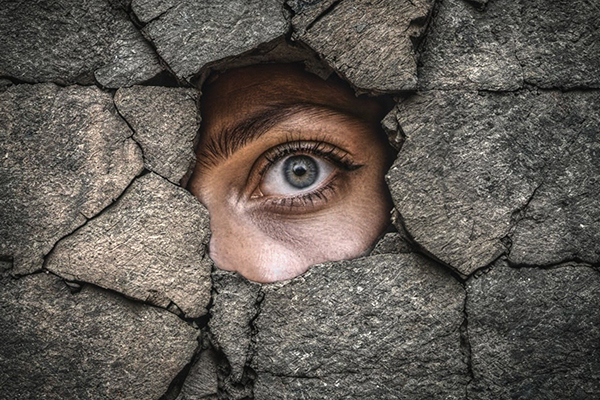
09/24/2024
A former senior U.S. Marine Corps officer who once planned battles during Operation Desert Fox in 1998 will discuss why military matters are kept such a deep, dark secret, on Wednesday, Sept. 25, at SUNY Cortland.
Raymond C. Damm Jr., a retired colonel in the U.S. Marine Corps, and also an emeritus professor in the Corps’ School of Advanced Warfighting, will begin at 4:30 p.m. in Moffett Center, Room 115.
His lecture, titled “‘Where’ and ‘Why’ are State Secrets Born?,” launches this year’s five planned lectures during the university’s 2023-24 Rozanne M. Brooks Lecture Series themed on “Secrets and Mysteries.”
The discussions all take place on Wednesdays and begin at 4:30 p.m. in Moffett Center, Room 115. Seating will be limited, so attendees are advised to arrive early to secure a seat. A reception to welcome speakers precedes each talk at 4 p.m. in the adjacent Brooks Museum. The events are free and open to the public.
“There are so many directions to go with this theme but the lecture series expresses some of the best,” said Brooks lecture series organizer and Brooks Museum director Sharon Steadman, a SUNY distinguished professor in Cortland's Sociology/Anthropology Department. “How the state keeps its secrets, how the incredible Sherlock Holmes solves his crimes, ancient mysteries in Egyptian religion, and the mysteries of unorthodox, even criminal, behavior, will be revealed by our excellent speakers.
“A visit to the Brooks Museum will find cabinets with ‘mysterious things’ for visitors to puzzle over,” Steadman said. “This year’s theme is meant to be enticing, interesting and, most of all, fun.”
First Brooks lecture on warfare
The School of Advanced Warfighting (SAW) develops lead planners and future commanders with the will and intellect to design and execute joint campaigns and naval expeditionary operations.
During his talk, Damm will briefly address the rather dry classification process used by the United States Government and the hierarchy of terminology used in its classification system.
Damm will then explain how the system is, and was, implemented in actual war situations, especially in the Department of Defense (DoD).
He’ll discuss a couple declassified scenarios, including the Mayaguez incident that occurred in 1975 in what is now Cambodia.
“A friend wrote his doctorate on the Mayaguez incident, employed as a case study on how something strategically small got to be so tactically big and the mistakes that lead to those decisions,” Damm said.
The Mayaguez incident cost the lives of three Marines.
His longer discussion will be about 1988’s Operation Desert Fox, in which he served on the planning/execution team in Saudi Arabia.
Additional series presentations:
(Not So) Elementary, My Dear Watson: The Popularity of Sherlock Holmes — Ann McClellan, SUNY Cortland provost and chief academic officer, asserts that the Great Detective is alive and well in the 21st century, as evidenced by the recent spate of Sherlock Holmes movies, television shows and literary adaptations. “Holmes is the most portrayed literary character of all time, with over 230 film versions alone in several different languages,” McClellan said. The biggest mystery, according to her, is why is Sherlock Holmes now a multi-million dollar industry, and into that she will delve. Nov. 13.
The Secret Dangers of Empathy — Empathy usually has such positive associations. Karen Davis, a SUNY Cortland associate professor of psychology, will explore how extreme forms of empathy contribute to violent behavior. “Although research has shown that a lack of empathy increases risk for criminal behavior, there is a growing recognition that possessing empathy does not necessarily prevent violence and may be central to why some individuals engage in criminal behavior,” Davis said. Her talk will highlight the potential secret dangers of this trait. March 5, 2025.
The Power of (Revealing) Secrets in Ancient Egypt — Religious knowledge was a closely guarded secret in ancient Egypt, where only the initiated knew how to perform the rituals that would appease the gods and keep the sun rising every day. Danielle Candelora, an assistant professor of classics at College of the Holy Cross, will discuss religion, propaganda, and immigrant identity among the ancient Egyptians. April 2, 2025.
The Brooks Series honors the late Distinguished Teaching Professor of sociology and anthropology emerita at SUNY Cortland, Rozanne M. Brooks, whose donated special collection of ethnographic objects to the Sociology/Anthropology Department established the Brooks Museum in 2001.
The 2024-25 Brooks Lecture Series is co-sponsored by the Cortland College Foundation and Cortland Auxiliary. For more information, contact Sharon Steadman at 607-753-2308.
Image courtesy of DangrafArt for Pixabay.